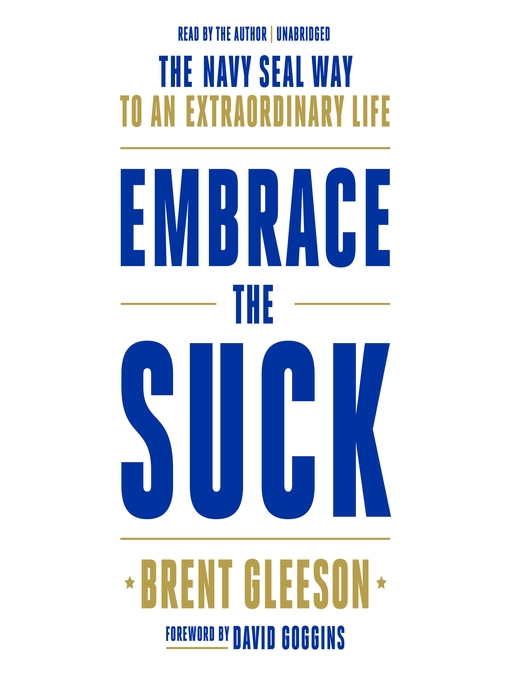

Zinsser recalled a passage from Victor Frankl's "Man's Search for Meaning": "We who lived in concentration camps can remember the men who walked through the huts comforting others, giving away their last piece of bread." He also began to focus on giving - teaching younger aviators that they, too, could endure adversity for years, if necessary. So he turned to the question of "What else am I going to do with my career, my life?" He began to think about what he was going to learn from his years as a POW. I realized after a while that, whenever I got out of there, I was no longer on track for the astronaut program." "Optimism is important, but you have to balance it with reality. Still, Alvarez found that letting go of some dreams was part of embracing the suck.

Pessimists tend to think the opposite: "This may be my fault, this may never end, and this may destroy my life." Optimists tend to display several mental responses when they encounter difficulty: "This is not personal against me, this is not forever, and this will not destroy my future." Research at the Mitchell Center also found optimism was a key to POW resilience. Zinsser echoes that approach, teaching West Point cadets to ask, "How can this make me stronger?" Moore says that, in a crisis, there is value in pausing to ask, "What meaning can I find in this?" One ran around his cell in circles for hours at a time, not out of frustration, but to return to health and fitness after ejection injuries. Several learned new languages, taught to them by their fellow POWs. One of them designed a house in his head, which he in fact built when he returned home. They found ways not just to survive, but to thrive. Instead, they created productive goals for their experience. "They became experts at not letting the experience frame them," he said. Moore spent decades studying the Hanoi Hilton POWs, and their ability to compartmentalize the challenges of their daily existence was key to their resilience. Moore asserts the Vietnam War POWs are "poster children" for finding purpose in prolonged adversity. Mitchell Center for POW Studies at Naval Air Station Pensacola, Florida. Jeffrey Moore, the former executive director of the Robert E.

"What do you want to gain from this experience?" is a good question to ask yourself, says neuropsychologist Dr. Those things you push outside yourself," he said.įocusing on what you can control includes actively looking for ways to put the unexpected problem to work for you. You draw a mental frame around the things you cannot control. His maternal grandmother and both of his parents had modeled strength and tenacity in overcoming severe poverty, and Alvarez drew on those memories: "Family stories of the adversities they faced had shaped my character and gave me backbone."Įmbracing the suck also meant unlearning the mantra of "men don't cry."Ĭombating boredom, frustration and uncertainty, Alvarez discovered that tearfully acknowledging his feelings allowed him to then focus his energy on what he could control. When you grow up in a turbulent household, you have to learn to shut things out." Raised in a household with an alcoholic and abusive father, he found, "I had learned to live with myself. We can choose to reframe it and actually learn something from the pain.Īlvarez tapped into his life experiences to endure. We cannot control everything that happens to us. Military Academy's Performance Psychology Program, characterizes it, "It's the idea of being emotionally comfortable while being physically uncomfortable." For six months, he was alone in the old French prison in North Vietnam's capital city.Ĭonfined to his cell, Alvarez learned to "Embrace the suck." This military term hadn't yet been coined, but Alvarez and the growing group of POWs practiced its essence: "This is really bad, so let's make the best of it we can."Īs Dr. 5, 1964, and became the first American prisoner of war held in the infamous "Hanoi Hilton." He spent the next eight-and-a-half years there. Sent on an early combat mission over North Vietnam, he was shot down on Aug. military being an astronaut would have been unprecedented. At that time, Hispanic fighter pilots were rare in the U.S. about his early career as a Navy fighter pilot in the 1960s. "I was on track to get into the astronaut program," recalls Everett Alvarez Jr. Taylor Baldwin Kiland and Peter Fretwell are the coauthors of " Lessons from the Hanoi Hilton: Six Characteristics of High-Performance Teams" (Naval Institute Press, 2017).


 0 kommentar(er)
0 kommentar(er)
